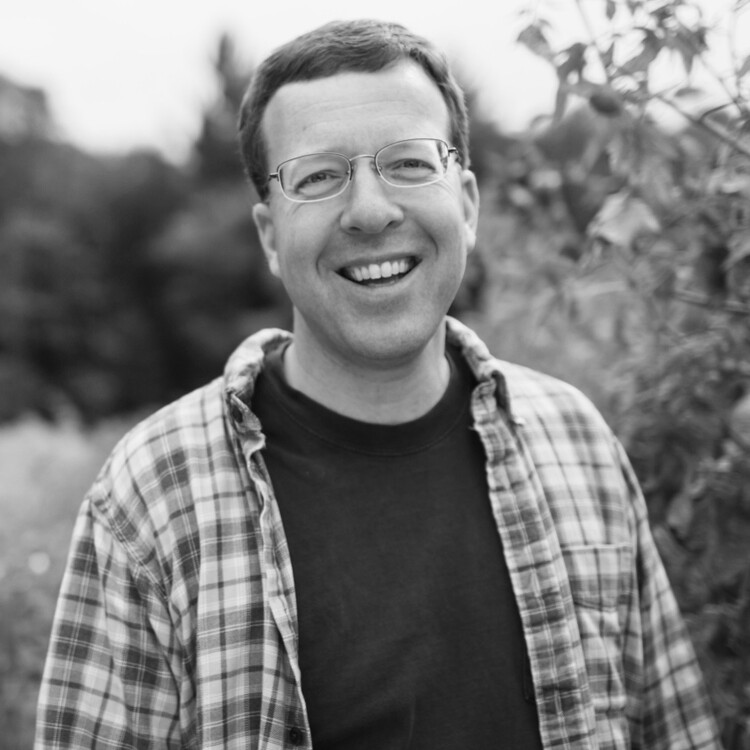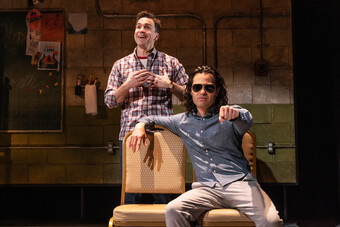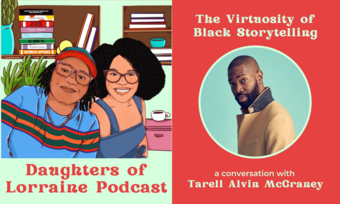What Farming is Teaching/Reminding Me about Playwriting and Theater, Part 3
In a three-part series, playwright Patrick Gabridge writes on how spending two seasons farming revealed a lot more than just how to grow vegetables.
And a final few thoughts (for now) about theater and farming.
Theater isn’t the only artform/profession fighting against big corporations and institutions hogging all the money, power, influence, bling. When it comes to telling dramatic stories, television reaches millions and millions of viewers. Broadway has the bright lights and millions of tourists and Disney and big money. When it comes to food, Big Ag feeds most of the country, seamlessly delivering Coke and Doritos and pudding pops to supermarkets across the country. Most of the shoppers at Stop & Shop and Marketbasket and Kroger’s and even Whole Foods don’t know any farmers and have never been to a farmer’s market and never will. My tiny organic farm can’t compete with the price and distribution of the big guys. Or influence—the farm bill doesn’t really take me into account. Small organic vegetable farmers don’t get many more crumbs thrown at them than individual artists get from the NEA or big charitable institutions.
That’s okay. (Kind of.)
I grow my vegetables and I find an audience for them. It’s not going to be a huge audience. To be honest, I don’t want a 1,000 acre farm with half million dollar tractors and crews of immigrant laborers. I like creating great food, from seedlings grown in my basement to fully grown bunches of kale and bushels of tomatoes that taste like bottled summer sunshine.
Yes, there’s a part of me that would like to have a show on Broadway, or write for Game of Thrones. But I love working with the incredibly talented actors in Boston, reading and workshopping my plays, and bringing them to fruition in front of audiences who are from my city, my community. I’m writing something intense and personal and for them and me.
When it doesn’t go well, sometimes it really sucks. I try to be an upbeat guy—no one wants to hear me whine and complain about my life. But when my beans and collards and onions and lettuce all die because the rain keeps coming and the water sits in the fields and slowly drowns the plants, and even when I break through the crust afterwards the soil smells sour from the anaerobic bacteria, well, it gets me down. And all I can think about is the thousands of dollars I’ve already spent on seeds and rent and tools and gear that was supposed to get paid back to the family emergency fund from which I borrowed, especially now that the family emergency fund is supposed to pay for our daughter’s college tuition. And those plants rotting in the ground, surrounded by weeds that don’t give a shit that it’s rainy, or soggy, or too hot, and just keep growing and growing. And I’m on my knees in the mud, dripping sweat, pulling the weeds as fast as they can grow, wondering what I was thinking in taking on twice as much land this year, knowing that I have exactly the same amount of daylight as last year, and it seemed pretty tough then. And the color is off on all the plants, because their roots are messed up from soil compaction and too much water, and I can’t feed them what they need, and I wonder if late blight is coming, the same fungus that killed millions of Irish in the Great Hunger, and also wiped out the tomato crop in Massachusetts in 2009.
Or when the first reading of my play falls deathly flat and it feels like I just wasted half a day of precious workshop time. Or the tiny theater company does a great job putting a show together, but no one comes because everyone is so stretched that there’s no time/energy left to do publicity. Or there’s a blizzard. Or the director yells and treats me like an idiot and inserts little video clips into my play without telling me. Or my script gets second place, again. Or a theater does a reading of my play and their audience seems to love it, but they’re not going to produce it, because it’s not right for their audience/the cast is too big/the cast is too small, or because the play requires a black/Asian/Latino actor, or they really needed a comedy/a drama/a musical, or they’re doing a play by the artistic director’s college roommate/boyfriend/friend of the board/donor’s nephew. Or when the play starts out like a brilliant comet streaking across the sky and I wrestle it and tame it and it ends up feeling like a cold ball of frozen mud, and I know those sparks are never coming back.
That’s when it sucks.
And I have to wait it out. Wait for the sunflowers to bloom. And for the tomatoes to finally turn red. And for the actors to come up and say how much they love the roles and that my writing says so much about the human condition, and I hear that collective intake of breath from the audience, exactly where I expected. Then I’m standing in the field, smiling in the sun, wondering how all this ever got planted by so few hands. Or I’m standing backstage, looking at the set and the actors and listening to the audience applauding, and wondering how this whole thing came into being from the scrap of a random idea ten years ago.
And then it doesn’t suck. So I keep coming back for more.














Comments
The article is just the start of the conversation—we want to know what you think about this subject, too! HowlRound is a space for knowledge-sharing, and we welcome spirited, thoughtful, and on-topic dialogue. Find our full comments policy here
Patrick, I can't tell you how much I've enjoyed this! Thanks for a wonderful series.
Terrific pieces. True, funny and heartbreaking. And if you'll pardon the pun, refreshingly down-to-earth. Thank you!
I absolutely love this. Thanks Patrick.
Thanks, Seth. It's been quite an experience, and I'm glad to have HowlRound give me a good excuse to take some time to think about it all in a semi-coherent fashion.